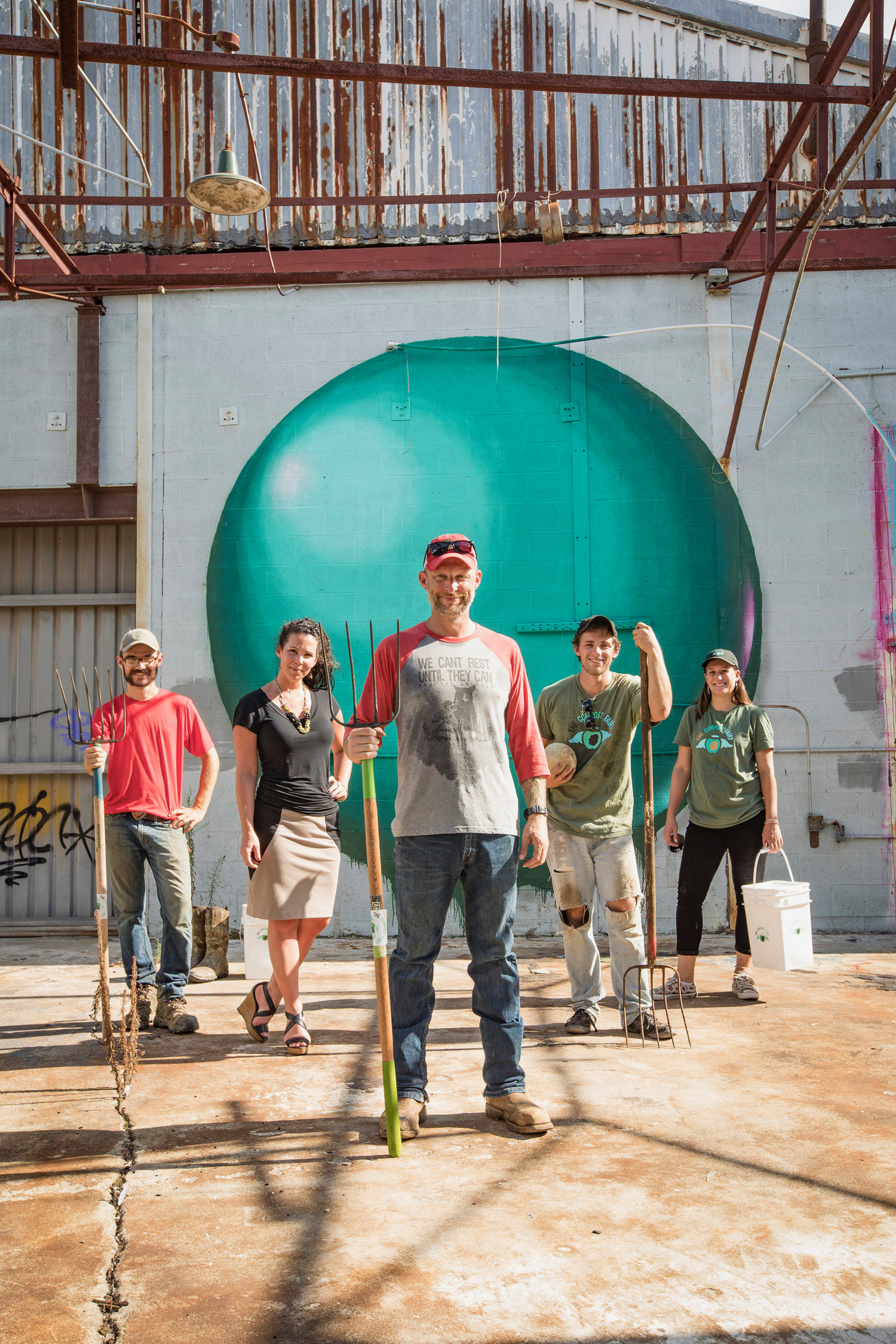Interview with Mike Larrivee of Compost Fairy and Atlas Organics
Words by Heidi Rupke
Be careful what you post on Nextdoor. It might just change your life.
In 2015 Mike Larrivee posted on the neighborhood networking site asking for food scraps so that he could start composting and thereby feed his backyard garden without synthetic fertilizers. The response of his neighbors was overwhelmingly positive. There were so many food scraps available that Mike eventually decided to switch career tracks and make Memphis composting his main goal. In 2017, Mike founded a nonprofit, Compost Fairy, and more recently has wooed a large-scale composter—Atlas Organics—to Memphis.
 For anyone who needs a quick refresher, the science of composting is both simple and elegant. Nitrogen from fresh food scraps (the “green” part of this equation) combine with carbon from dead leaves and other dry organic matter (the “brown” part.) When they are mixed in the proper proportion and are turned so that oxygen enters the pile, these “waste” products become the sort of thing your trees and front yard garden love. Or if you’re not much of a gardener, compost is what helps farmers grow your food.
For anyone who needs a quick refresher, the science of composting is both simple and elegant. Nitrogen from fresh food scraps (the “green” part of this equation) combine with carbon from dead leaves and other dry organic matter (the “brown” part.) When they are mixed in the proper proportion and are turned so that oxygen enters the pile, these “waste” products become the sort of thing your trees and front yard garden love. Or if you’re not much of a gardener, compost is what helps farmers grow your food.
As a professional geologist, Mike was well-positioned to move into the dirt regeneration space. With friends who are local farmers and chefs, he knew several places who would benefit from more people recycling their food scraps. And when local growers have richer soil without chemical inputs, we all benefit. (See you at the farmer’s market on Saturday and the curbside take-out of your favorite restaurant!)
The composting movement in Memphis has found strong support with residents and businesses. Clients toss their banana peels, eggshells and even dryer lint and beef bones into a sealable five-gallon bucket. The bucket is picked up each week and replaced with a sanitized one. Businesses have bigger carts and more frequent pick-ups, but the process is the same. As a bonus, businesses can reduce their waste-hauling fees by separating organic scraps from landfill-destined trash.

“We’re heavily subscribed to the concept of throwing things ‘away.’ ‘Away’ is the South Shelby landfill. [Non-compostable things like] styrofoam may be cheap at the register, but you’re passing the real cost of that poor decision on to your kids,” says Mike.
Throwing food scraps in landfills is particularly destructive because there they mix with other trash and slowly rot instead of turning into gardening fodder. As this food rots, it gives off methane, which is many times more efficient than carbon dioxide at trapping heat in the atmosphere. In this way, uneaten food is directly contributing to climate change.
Climate change can seem like an overwhelming and far-away concept when many people have difficult problems very close to home. Mike and his team are committed to providing access to composting services to everyone, even those who might not have resources to fully pay for the service. Through free drop-off sites, the Compost Fairy and Atlas Organics ensures that everyone can make a clear dent in food waste.
This ability to see and measure change is part of the attraction of this work.
“Even on the days when I feel further behind at the end of the day than when I started, I can look at a giant pile of food waste and see what I’ve accomplished. Meetings may not go well, but at the end of the day I can look at the food waste diverted and know that what I did had real, measurable impact,” says Mike. 
That Nextdoor post and the work of folks like Mike Larrivee are changing Memphis. Currently, 100 tons of food scraps per week are being diverted from the landfill. That means that Memphis’s kids will have less trash and pollution to deal with and more veggies grown in rich soil. Composting is one way that Memphis is transforming. Join the movement; there’s plenty of room for you and your food scraps.

